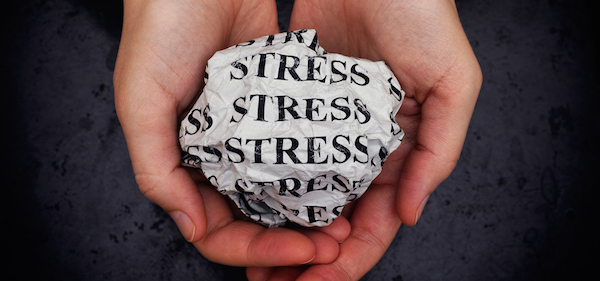Everyone feels overwhelmed and stressed from time to time, but how do you know when stress is starting to damage your health? According to WebMD, “no part of the body is immune” from stress. It can affect all aspects of your life, including your emotions, behaviours, thinking ability and physical health.
People who are stressed often feel:
- easily agitated, frustrated and moody
- overwhelmed and out of control
- unable to allow themselves to relax
- low self-esteem
- a desire to avoid others.
Physical symptoms of stress can include:
- low energy
- headaches, upset stomach and tense muscles
- chest pain and rapid heartbeat
- infections, such as colds, due to a weakened immune system
- insomnia
- anxiety
- a dry mouth, clenched jaw and grinding teeth.
It’s important to learn how to take charge of your stress so that it doesn’t overwhelm you and stop you from living normally.To manage stress in your life, try to avoid these behaviours:
1. Replaying stressful situations
So, you’ve experienced a stressful situation. What should you do to move on? First, do not replay the situation over and over in your head. This habit will keep you in a state of anxiety and could actually cause you to hold on to the issue for longer. When you feel yourself becoming fixated, it’s best to switch gears. Switch to a positive thought using an affirmation – for example, “I am healthy and fine” or “I did this other task well today”.
2. Speculating on ‘what-ifs’
Try your best to limit negative self-talk. Focusing on the possibility of whether you might have a car accident today or if that person will like you or not, will only project those negative thoughts into the future. The fact is, you don’t know what will happen in the future and you don’t have control over it. All you can do is stay the present and just act on the information you have available. Instead of speculating, spend time appreciating completingyour daily tasks and enjoy the walk up your driveway, and smell the soil as you pull weeds from the garden, for example.
3. Procrastinating
Despite getting anxious looking at the tasks on your to-do list, and wondering how you’ll ever complete them all, don’t put them off. You’ll only make matters worse in the end. Instead, make a plan of how you’re going to tackle them. Decide on a long-term goal, and thenset smaller goals to reach it. Completing bite-sized portions of work is an easy way to feel accomplished, and motivates you to keep going.
4. Running late
Is there anything that boosts stress faster than running late for an event? There are many reasons for being late, and it’s important to know when it’s out of your control – and not lose your head. Sometimes we run late because we’ve been disorganised, but other times we have to realise that we’re not to blame. If you lose your keys or the traffic is heavy, the only thing you can choose is how you’re going to react. Are you going to manically throw cushions around trying to locate your lost keys, or are you going to call ahead and calmly inform the person waiting that you’ll be late? Only one of those options will make you feel composed.
5. Cluttering your home or workspace
A tranquil environment makes for a tranquil mind; the same goes for the opposite. If your living or workspace is cluttered, you’re likely to feel disorganised and stressed. Give your mind the space it needs to be efficient and productive by providing yourself with a calming environment. A good rule of thumb when decluttering your space is that if you haven’t used it in a year, it’s probably time to part with it.
Find out more about stress at WebMD.
How do you avoid stress in your life?

